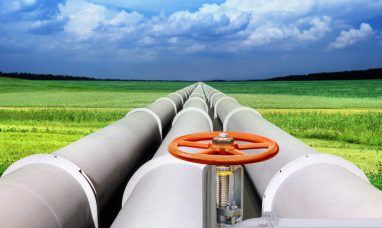OTTAWA, ON, Sept. 8, 2023 /CNW/ – Climate change is causing wildfires to become more frequent and more severe across Canada, threatening our health, economies and wildlife. As this year’s unprecedented wildfire season continues in many provinces and territories, the Government of Canada is continuing to support Canadians now while strengthening the country’s ability to adapt to a changing climate.
The Honourable Jonathan Wilkinson, Minister of Energy and Natural Resources, along with the Honourable Harjit Sajjan, President of the King’s Privy Council for Canada and Minister of Emergency Preparedness and Minister responsible for the Pacific Economic Development Agency of Canada; the Honourable Bill Blair, Minister of National Defence; the Honourable Patty Hajdu, Minister of Indigenous Services; the Honourable Randy Boissonnault, Minister of Employment, Workforce Development and Official Languages; the Honourable Dan Vandal, Minister of Northern Affairs and Minister Responsible for the Canadian Northern Economic Development Agency and Prairies Economic Development Canada; and Michael McLeod, Member of Parliament for the Northwest Territories, today announced that more than $65 million in federal funding has been committed so far through for six agreements through the $256-million Fighting and Managing Wildfires in a Changing Climate – Equipment Fund.
Single and multi-year agreements with Alberta, British Columbia, Nova Scotia, Saskatchewan, Northwest Territories and Yukon will support the efforts of provinces and territories to strengthen capacities and capabilities in fire management across Canada by procuring specialized wildland firefighting equipment such as fire crew trucks and personal protective equipment.
The Ministers also announced that both British Columbia and the Northwest Territories recently signed agreements with the federal government to access the maximum available funding under this program. This will see federal contributions of over $28.5 million for the Northwest Territories and $32 million for British Columbia over five years. With funding already flowing this year, these newly expanded agreements will provide consistent support for British Columbia and the Northwest Territories to secure lifesaving equipment and personnel.
The Fighting and Managing Wildfires in a Changing Climate program provides $256 million over five years, starting 2022–2023, to support provinces and territories. The six agreements detailed today are the first of many that will further strengthen fire management capacities and capabilities across the country by facilitating the purchase of wildland firefighting equipment to increase capacity to respond and prepare for wildland fires.
These agreements build on important actions to date, including through the first phase of the Wildland Firefighter Training Fund that will train up to 630 firefighters and 125 Indigenous fire guardians and pilot Responding to the Interface training for structural firefighters in partnership with the International Association of Fire Fighters (IAFF). The Government of Canada has also announced a long-term investment in the one-of-a-kind WildFireSat satellite mission. Additionally, as outlined in the National Adaptation Strategy, the Government of Canada has committed to improving resilience strategies and preparedness efforts to reduce disaster risks.
Ministers Wilkinson, Sajjan, Hajdu, Boissonnault and Vandal and MP McLeod also provided an update on the actions that the Government of Canada has taken so far to support communities impacted and threatened by wildfires and how it will continue to support Canadians through this year’s fire season and future seasons.
Also today, Government of Canada officials provided an updated forecast for the remainder of the 2023 wildfire season. Canada has leveraged its significant resources from coast to coast to coast this wildland fire season to respond to the considerable challenges Canadians are facing. Current forecasts indicate the possibility for increased wildland fire activity in central Canada during September, from eastern Alberta through to central Ontario. Fall is typically when new wildland fire occurrence begins to taper off due to cooler night temperatures and decreases in lightning activity. However, predictions for ongoing warm and dry weather may contribute to new fire starts, and there remains a likelihood that some existing large fires may continue to be active through September and possibly later into fall or winter.
By working together with provinces, territories, Indigenous communities and our international allies, the federal government is supporting the fight against wildfires and combating the effects of climate change, while ensuring public safety and protecting homes, livelihoods and lives.
Quotes
“Throughout Canada’s worst wildfire season, the federal government has been determined to support Canadians and at-risk communities. As wildfires continue to burn across Canada, we are providing over $65 million in funding to our territorial and provincial counterparts for life-saving equipment and important contracting. This means more resources and more boots on the ground in our fight against these intense and dangerous wildfires.”
The Honourable Jonathan Wilkinson
Minister of Energy and Natural Resources
“Communities across the country are seeing their daily lives affected by an unprecedented wildfire season. Our government has stood by them and will continue to support them through these difficult times. Today’s announcement will provide key support to provinces and territories, firefighters and the entire emergency management community who have been valiantly protecting the health and safety of Canadians since the beginning of this forest fire season.”
The Honourable Harjit Sajjan
President of the King’s Privy Council for Canada and Minister of Emergency Preparedness and Minister responsible for the Pacific Economic Development Agency of Canada
“In British Columbia, the Northwest Territories and across the country, Indigenous communities have been disproportionately impacted by a historically long and severe wildfire season, intensified by climate change. Today, we announced additional funding for firefighting efforts including to buy equipment to continue to fight wildfires. The federal government will be with First Nations every step of the way. We will continue to work with leaders and cover 100 percent of eligible costs for transportation, accommodation, food and mental wellness supports for evacuees. And as the hard work of rebuilding begins, we will be there to support that too.”
The Honourable Patty Hajdu
Minister of Indigenous Services
“This year’s wildfire season has been unprecedented and devastating for communities across the country. Evacuations have disrupted the lives of tens of thousands of Canadians, including in many Indigenous communities. In spite of this, Canadians are responding as they always have, by coming together and supporting each other. That’s who we are, and that’s what we will continue to do.”
The Honourable Randy Boissonnault
Minister of Employment, Workforce Development and Official Languages
“Northerners are resilient, and our government will continue to support them as they continue to face the harsh effects of climate change. This announcement will ensure the Northwest Territories has the resources it needs to fight the wildfires and protect their communities.”
The Honourable Dan Vandal
Minister of Northern Affairs and Minister Responsible for the Canadian Northern Economic Development Agency and Prairies Economic Development Canada
“This fire season has been incredibly challenging to residents of the Northwest Territories. The support provided by the Government of Canada has helped local efforts to keep our residents and communities safe. As many evacuated residents are beginning to return to their homes, it is critical that all levels of government work together to help the Northwest Territories rebuild and recover.”
Michael McLeod
Member of Parliament for the Northwest Territories
“The Government of the Northwest Territories is incredibly grateful to be able to access its full notional allocation under the Government of Canada’s Fighting and Managing Wildfires in a Changing Climate – Equipment Fund. This unprecedented wildfire season has impacted our land, our communities and our residents unlike ever before, and it is still very much ongoing. Our government is humbled by the amount of support it has received from the Government of Canada as well as from provincial, territorial and international partners this season. This generous support has increased our capacity to respond to and prepare for wildfires during the most challenging season in our territory’s history.”
The Honourable Shane Thompson
Northwest Territories’ Minister of Environment and Climate Change, Minister of Municipal and Community Affairs, Minister Responsible for Youth
“Too many people in British Columbia have had their lives upended by wildfire this year — one of our most devastating seasons ever. Some have lost their homes and livelihoods, and impacted communities will be rebuilding for many years to come. In recent years, we made the largest investment in British Columbia’s history in wildfire prevention and our firefighting capacity, expanding the BC Wildfire Service’s year-round operations and equipment. As we work to prepare for future fire seasons, we are grateful for additional support from the Government of Canada for much-needed equipment and supplies. These investments will be used to upgrade BC Wildfire Service fire camp infrastructure, equipment and mass water delivery systems, helping to ensure the organization is well equipped for future wildfire and natural hazard responses.”
The Honourable Bruce Ralston
British Columbia’s Minister of Forests
Quick Facts
- Seasonal wildfire forecasts use the most recent fire weather indexes and consider drought conditions and temperature and precipitation forecasts derived from two climate model ensembles known as the Canadian Seasonal to Interannual Prediction System (CanSIPS), operated by Environment and Climate Change Canada).
- Current information on national fire conditions is available publicly at all times through Natural Resource Canada’s Canadian Wildland Fire Information System. Additionally, during the fire season, the Canadian Forest Service supports emergency and fire management agencies through the development of situation reports (fire weather forecasts, situational awareness) and the delivery of fire growth and behaviour models.
- The Government of Canada, through Environment and Climate Change Canada, is committed to providing support to all partners by supplying weather information including detailed precipitation and wind forecasts, smoke dispersion predictions and air quality forecasts. Access the latest weather information with weather.gc.ca.
- The Government Operations Centre (GOC), on behalf of the Government of Canada, is the lead for federal response coordination for emergency events affecting the national interest and works in close collaboration with federal organizations, non-governmental organizations and provincial emergency management partners.
- Under NRCan’s Fighting and Managing Wildfires in a Changing Climate program Training Fund, $28 million over five years starting in 2022–2023 is being provided to train 1,000 new community-based firefighters to reduce the risk from wildfire and support community-based capacity.
- Under NRCan’s Fighting and Managing Wildfires in a Changing Climate program’s Equipment Fund, provinces and territories can cost-share investments for equipment, such as vehicles, mobile units, avionics upgrades (parts), hoses, pumps, enhanced communications equipment, the repair of aging equipment and training.
- Through the agreements announced today:
- Alberta purchased additional wildfire equipment including incident supply trailers, ignition trailers, drone units, personal protective equipment, water delivery units, fire pumps and chainsaws. The total project cost is $2,266,500, shared equally between the Government of Canada and the Government of Alberta.
- British Columbia will purchase equipment including fleet vehicles and fire crew trucks, all-terrain vehicles, fire camp infrastructure, mass water delivery systems, aerial ignition devices, weather stations, pumps, first-aid and crew safety equipment. The total project cost is $64,000,000, shared equally between the Government of Canada and the Government of British Columbia.
- Nova Scotia purchased wildland fire equipment, including wildfire suppression tools, first responder personal protective equipment, fireline radios and wildfire incident support trailer, and invested in staff Incident Management training. The total project cost is $999,800, shared equally between the Government of Canada and the Government of Nova Scotia.
- Saskatchewan will purchase equipment including handheld two-way radios, protection sprinklers and hoses, and flotation and protection pumps and pump kits. The total project cost is $4,699,000, shared equally between the Government of Canada and the Government of Saskatchewan.
- Northwest Territories will purchase equipment including purchase specialized wildfire equipment; contract external services such as helicopters; support specific training; and staff key positions related to wildfires, including extending hires past the usual wildfire season. Total project cost is $38,402,412, of which the Government of Canada is contributing $28,800,000 and the Government of Northwest Territories is contributing $9,602,412.
- Yukon will purchase equipment including pumps, hoses, radios, fire weather and climate monitoring equipment, and aviation and fuel system equipment upgrades. Total project cost is $741,895, of which the Government of Canada is contributing $556,421 and the Government of Yukon is contributing $185,474.
- The FMWCC is fully aligned with Canada’s National Adaptation Strategy, which lays out a framework to reduce the risk of climate-related disasters, improve health outcomes, protect nature and biodiversity, build and maintain resilient infrastructure, and support a strong economy and workers.
Related products
- Canadian Wildland Fire Information System: Monthly and Seasonal Forecasts
- Canadian Wildland Fire Strategy
- Fighting and Managing Wildfires in a Changing Climate Program
- WildFireSat: Enhancing Canada’s ability to manage wildfires
- Wildfires – Canada.ca
- Canada’s National Adaptation Strategy: Building Resilient Communities and a Strong Economy
Follow us on LinkedIn
SOURCE Natural Resources Canada

Featured image: Megapixl © carloscastilla















